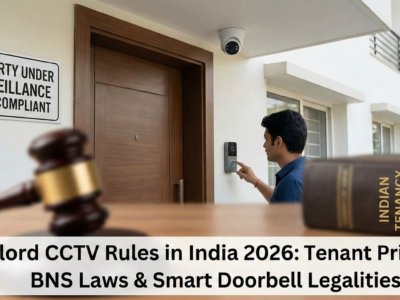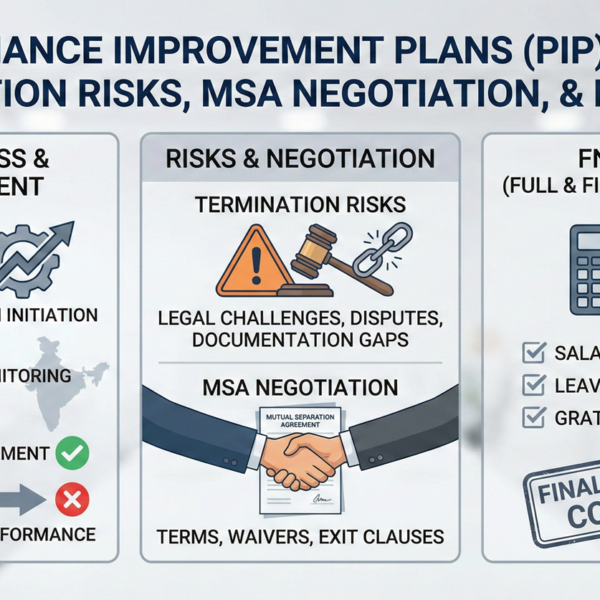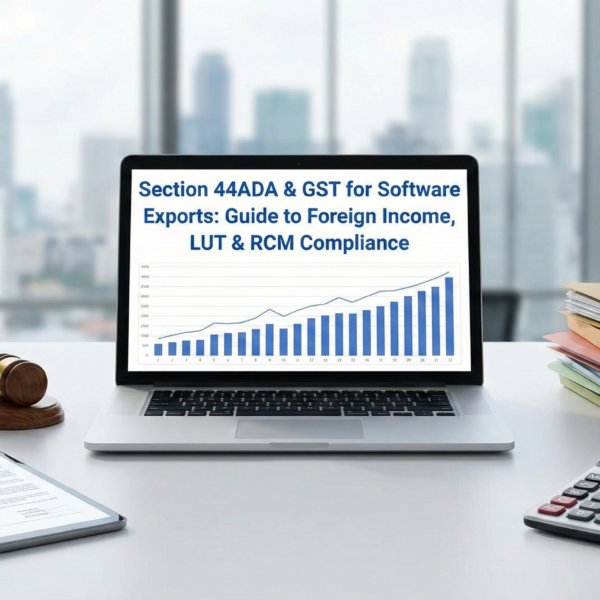“Is he constantly asking for your phone password? Does he insist on reading your private chats?” This unsettling demand, often disguised as a test of loyalty, is a question many women in India silently face. You may wonder, “Does he have the right to ask?” and “What can I do?”
Let’s be clear: As of August 2025, the answer from Indian law is a resounding no. Forcing a spouse to share her passwords is not a marital right; it is a violation of your fundamental Right to Privacy and can be considered an act of coercive control and domestic violence. This comprehensive guide will walk you through your updated legal rights, explain the laws that protect your digital dignity, and provide a clear, step-by-step plan for taking action.
Can Your Husband Legally Force You to Share Your Passwords?
The answer is an unequivocal NO. Under Indian law, forcing a spouse to share passwords is a violation of fundamental rights, a form of domestic violence, and a punishable offense.
Constitutional Violation
It violates your Fundamental Right to Privacy under Article 21, as established by the Supreme Court.
Domestic Violence
It's considered "emotional & psychological abuse" under the Domestic Violence Act, 2005.
Criminal Offense
Can be prosecuted as "mental cruelty" under Section 498A of the Indian Penal Code.
1. The Constitutional Bedrock: Your Inviolable Right to Privacy
The foundation of your right to digital privacy is not a privilege, but a fundamental right guaranteed by the Constitution of India. Marriage does not erase this right.
The Landmark Case: The Supreme Court's nine-judge bench in *Justice K.S. Puttaswamy (Retd.) v. Union of India* unanimously declared the **Right to Privacy** as a fundamental right, intrinsic to the right to life and personal liberty under Article 21.
"Right to privacy is an intrinsic part of right to life." — Chief Justice J.S. Khehar
Crucially, the court affirmed that this right belongs to the **individual**, not the institution of marriage. Your autonomy and your digital spaces are protected by the Constitution.
Four Dimensions of Your Protected Privacy
Informational Privacy
Your right to control your personal data—emails, chats, photos. A password is the lock.
Decisional Autonomy
Your right to make personal choices without interference. Digital control undermines this.
Privacy of Sanctuary
Your right to a private space, a digital "room of one's own," free from intrusion.
Privacy of Intimacy
Your right to maintain personal relationships and communications without surveillance.
2. Spousal Privacy Jurisprudence: High Courts Weigh In
Following the Supreme Court's lead, various High Courts have affirmed that marriage is a union of individuals, each retaining their fundamental rights in the digital realm.
Karnataka HC: Marriage Does Not Eclipse Privacy
In a 2023 ruling, the Karnataka High Court held that the marital relationship does not automatically grant one spouse the right to the other's personal data. It affirmed that procedural safeguards for accessing information (like Aadhaar details) must be followed, even between spouses, stating, "The marriage by itself does not do away with the procedural right of hearing."
Madras HC: Spousal Privacy is a Fundamental Right
In a powerful 2024 judgment, the Madras High Court declared that the fundamental right to privacy explicitly includes "spousal privacy." It ruled that evidence obtained by snooping on a spouse's phone is inadmissible, asserting that such an act "destroys the fabric of marital life" and is a clear breach of the wife's privacy.
Chhattisgarh HC: Forced Password Sharing is Domestic Violence
In a landmark 2025 judgment (*Chandrakant Mahilange vs Smt. Nageshwari Gahne*), the Chhattisgarh High Court delivered the most direct ruling on this issue. It observed that compelling a wife to share her passwords constitutes a violation of her privacy and can amount to domestic violence under the PWDVA, 2005. This sets a crucial precedent.
3. Legal Frameworks & Penalties: The Laws on Your Side
Digital coercion isn't just a "family matter"—it's a punishable offense under multiple Indian laws. Here’s a breakdown.
| Legal Provision | What it Means | Potential Penalty / Remedy |
|---|---|---|
| Sec. 498A, IPC, 1860 | Coercing for passwords causes grave mental injury, qualifying as "mental cruelty." | Up to 3 years imprisonment + fine. (Cognizable, Non-bailable) |
| Sec. 3, PWDVA, 2005 | It's "emotional & psychological abuse." The Chhattisgarh HC explicitly held this can amount to domestic violence. | Protection orders, residence orders, monetary relief, compensation. |
| Sec. 43, IT Act, 2000 | Accessing a device with a coerced password is "access without permission." | Liable to pay damages by way of compensation to the victim. |
4. The Evidence Paradox: A Legal Gray Area
This is a complex issue. While the act of forcing you to share a password is illegal, the information found might be admissible in a divorce court.
A Clash of Rights
Your Right to Privacy
The act of spying is illegal and punishable.
Right to a Fair Trial
Courts may allow the evidence to ensure a fair judgment.
The Bottom Line (Vibhor Garg v. Neha): The Supreme Court has ruled that secretly recorded spousal conversations are admissible in matrimonial disputes. This creates a paradox: the act of spying is illegal, but its "fruit" might be used in court. This means you can prosecute your husband for the act of coercion, even if he tries to use the information against you in a divorce case.
5. Global Context: Coercive Control as a Crime
India's legal direction aligns with a global trend among common law jurisdictions to recognize and criminalize "coercive control" as a distinct form of abuse.
United Kingdom
The Serious Crime Act 2015 created a specific criminal offense for "controlling or coercive behaviour." Statutory guidance explicitly lists monitoring a person via online tools and demanding access to their devices or passwords as examples of this criminal behavior.
Canada
Canada uses existing laws like Section 342.1 (Unauthorized Use of a Computer) of its Criminal Code. Additionally, courts recognize the civil tort of "intrusion upon seclusion," allowing a victim to sue for damages if a spouse invades their private digital accounts without permission.
6. The Psychological Impact: The Invisible Wounds
Digital coercive control is not just about passwords; it's a strategy of domination that inflicts deep and lasting psychological harm, made worse by the gendered digital divide in India.
Common Effects of Digital Surveillance:
- ✓Constant Fear & Anxiety: Living in a state of hypervigilance, or "walking on eggshells."
- ✓Erosion of Self-Worth: Leading to depression, self-doubt, and feelings of powerlessness.
- ✓Induced Isolation: The abuser controls your connections, cutting you off from support systems.
- ✓Questioning Your Sanity: Abusers often use the information to gaslight and manipulate, making you doubt your own reality.
- ✓A Sense of Omnipresence: Technology allows the abuser to be constantly present, creating a belief that there is no escape.
7. A Practical Guide to Taking Action
Knowing your rights is the first step. Taking action is the next. Here’s a clear, step-by-step guide.
Your Legal Pathways
For Immediate Protection (Civil)
- 1
Contact Protection Officer
They will file a Domestic Incident Report (DIR).
- 2
Approach Magistrate
The PO or your lawyer files the DIR in court.
- 3
Obtain Protection Order
Legally prohibits the husband from repeating the abuse.
For Criminal Prosecution
- 1
Go to Police Station
File a detailed complaint about the mental cruelty.
- 2
File an FIR
Police will register an FIR under Section 498A IPC.
- 3
Criminal Trial
The case proceeds to court for trial and potential conviction.
Support & Helplines
National Commission for Women (NCW) Helpline: 7827170170
Women Helpline (Universal): 181
District Legal Services Authority (DLSA): Provides free legal aid to victims.
NGOs: Organizations like Zolvit offer specialized legal support.
Digital Safety Checklist
✓ Change all important passwords immediately.
✓ Enable Two-Factor Authentication (2FA).
✓ Document abuse: screenshot messages and log incidents.
✓ Store evidence securely in the cloud or with a trusted person.
✓ Make your social media profiles private.
✓ Check devices for spyware with a trusted professional.
8. Conclusion: Upholding Digital Dignity in Marriage
Indian law is clear: your digital world is your own. Forced password sharing is illegal, abusive, and a violation of your fundamental rights.
The legal framework, from the Constitution down to specific statutes, establishes a powerful shield for a wife's digital autonomy. Marriage is a partnership of equals, not a license for one spouse to control the other. The law recognizes that digital coercion is a serious form of abuse with profound psychological consequences.
While complexities like the "evidence paradox" exist, the overarching message from the judiciary is one of protecting individual dignity. The law is not just a theoretical concept; it provides practical, actionable remedies. If you are facing this situation, know that you have the right to privacy, the right to safety, and the right to seek justice.









